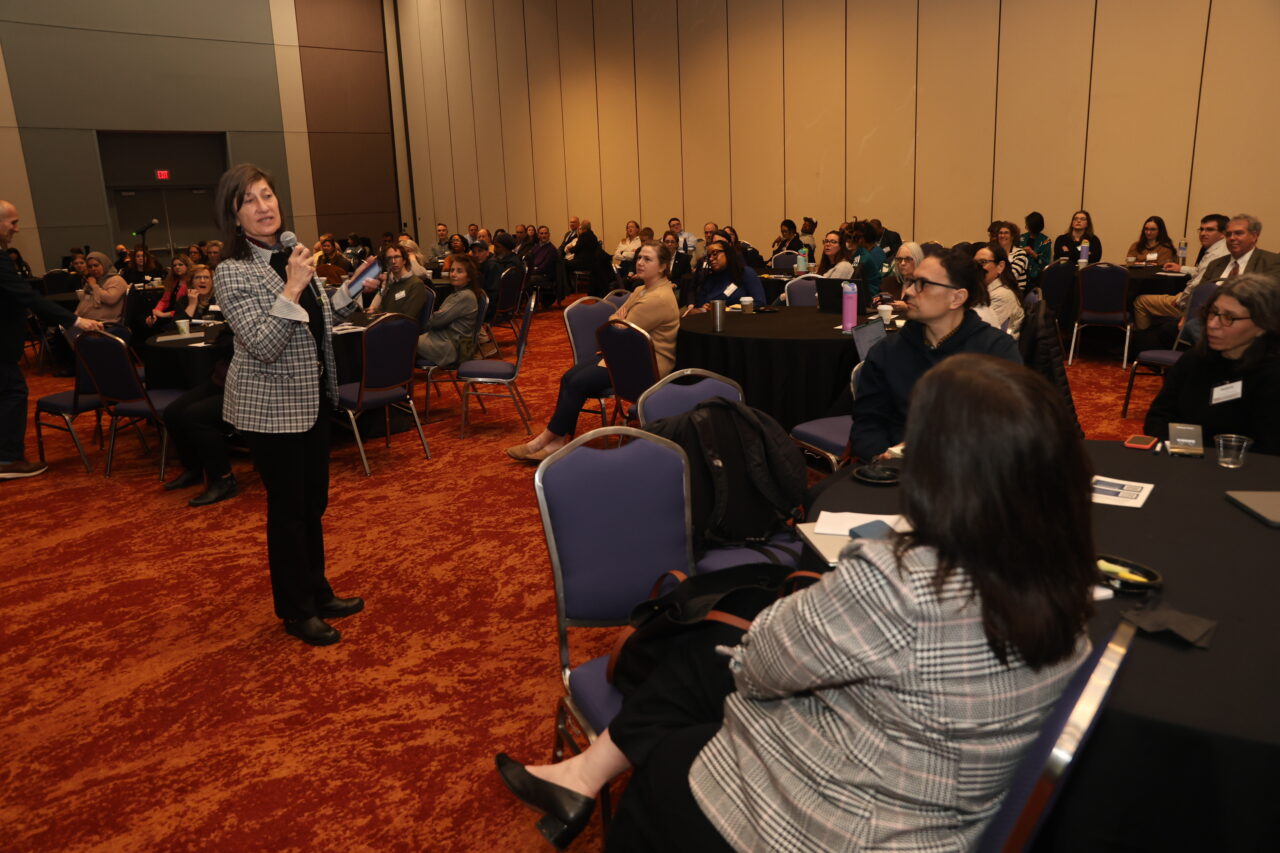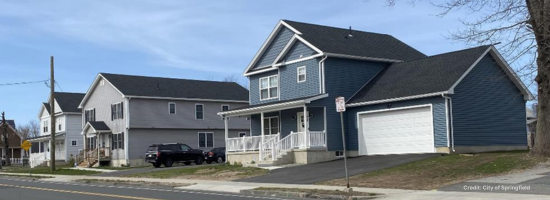
With generous support from the MassMutual Foundation, the MassINC Policy Center partnered with CHAPA, MACDC, MassHousing, and MHP to host the Reclaiming Vacant Property Conference in Springfield on April 8, 2025. Over 150 people from across the state brought enormous energy to the event. By the end of the day, we emerged with a shared sense of purpose and determination to address vacant properties, which in turn lifts up Gateway City neighborhoods and the people who live in them.
On a personal level, the conference represented an inflection point in the work I’ve set out to do since retiring from the bench in 2021. It was my great privilege to serve as a Housing Court judge in Western Massachusetts for 22 years. In that role, I handled thousands of cases involving distressed and vacant properties and saw firsthand how these properties can degrade neighborhoods and place a heavy, often traumatic burden on nearby residents. The conference gave me an opportunity to share my thoughts on how we can tackle this issue and to learn from others committed to the same work.
Here is just a bit of what we accomplished together on April 8:
We met in Springfield. Let’s face it: statewide conferences rarely happen in Springfield. The numbers are in Boston, and Worcester is centrally located. But Springfield earned the right to host this conference. Local public officials and philanthropies have been at the forefront of piloting new models for transforming distressed properties into affordable homeownership opportunities. Many thanks to MassINC for bringing us together in a city long known as The City of Homes!
We represented diverse stakeholders. One of the central themes of the conference was the importance of cross-sector collaboration in creating successful strategies to reclaim vacant, distressed properties. The diversity of attendees—including local and state government officials, nonprofits and CDCs, developers, legal professionals, and funders—fueled real optimism that we are capable of working together effectively.
We kept it real. At some point in every conversation about reclaiming vacant properties, we have to acknowledge a tough truth: this work almost always takes longer and costs more than expected, even for the most realistic among us. We didn’t shy away from that reality. Instead, we supported one another and shared practical information about legal tools and funding sources to help move projects forward.
We engaged. With the help of Slido, we engaged with one another throughout the day, providing contact information, asking questions, and making suggestions. Coming out of the conference, we have a growing data base of people who are engaged and committed to doing more, along with a sense of their ideas and needs.
We will seize the moment. The past year has seen remarkable developments that bear on vacant properties, including the Healey-Driscoll Administration’s Affordable Homes Act and Comprehensive Housing Plan and Elise Rapoza and Ben Forman’s superb work on the 2024 Gateway Cities Housing Monitor. Any of these developments alone would be significant; together they can be transformative. People showed up at the conference on August 8 because they know we have a generational opportunity to effectuate lasting change, and we intend to seize this moment.
We will take next steps. Those who attended the conference heard about two new legal tools that are available to assist in reclaiming vacant properties: an amendment to the receivership statute and legislation updating the Massachusetts tax-taking process in light of the 2023 United States Supreme Court decision in Tyler v. Hennepin County. Over the next year my work as a MassINC Greg Torres Senior Fellow will focus on helping Gateway Cities and their partners use these new tools to advance their work of reclaiming vacant properties to create affordable homeownership opportunities. Among other steps, I will be working with Housing Courts across the state to incorporate the new receivership statute into their practices, providing in-depth training for emerging developers and lawyers about receivership, and supporting teams of cross-sector stakeholders in Gateway Cities to develop strategic actions plans for reclaiming vacant properties in their communities.
These are my ideas, but the conference on April 8 demonstrated that there’s an army of people across the state who bring their own ideas and lots of energy to this work. I look forward to connecting will all of you as we work together to transform these distressed properties into new homes that help lift up entire neighborhoods.
Dina Fein is a Greg Torres Senior Fellow at MassINC and a former Massachusetts Housing Court judge.
Missed the conference?
Explore the event recap for key insights, policy updates, and next steps in the effort to revitalize distressed properties and strengthen Gateway City neighborhoods.
